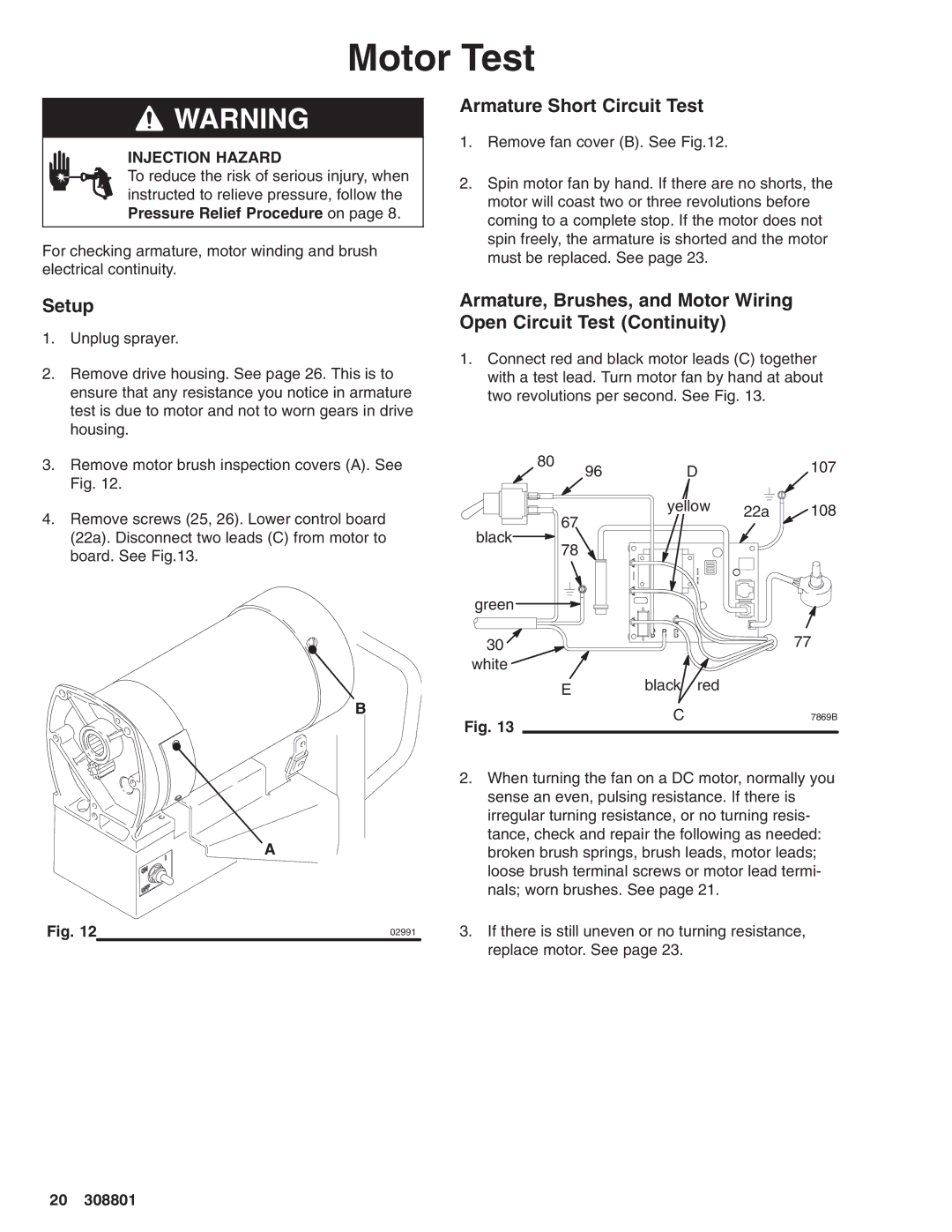
Motor Test
![]() WARNING
WARNING
INJECTION HAZARD
To reduce the risk of serious injury, when instructed to relieve pressure, follow the Pressure Relief Procedure on page 8.
For checking armature, motor winding and brush electrical continuity.
Setup
1.Unplug sprayer.
2.Remove drive housing. See page 26. This is to ensure that any resistance you notice in armature test is due to motor and not to worn gears in drive housing.
3.Remove motor brush inspection covers (A). See Fig. 12.
4.Remove screws (25, 26). Lower control board (22a). Disconnect two leads (C) from motor to board. See Fig.13.
B
A
Fig. 12 | 02991 |
Armature Short Circuit Test
1.Remove fan cover (B). See Fig.12.
2.Spin motor fan by hand. If there are no shorts, the motor will coast two or three revolutions before coming to a complete stop. If the motor does not spin freely, the armature is shorted and the motor must be replaced. See page 23.
Armature, Brushes, and Motor Wiring Open Circuit Test (Continuity)
1.Connect red and black motor leads (C) together with a test lead. Turn motor fan by hand at about two revolutions per second. See Fig. 13.
80 | 96 | D |
| 107 |
|
| |||
67 | yellow | 22a | 108 | |
|
| |||
|
|
|
| |
black |
|
|
|
|
78 |
|
|
|
|
green |
|
|
|
|
30 |
|
|
| 77 |
white |
|
|
|
|
E | black | red |
|
|
|
|
|
| |
| C |
|
| 7869B |
Fig. 13
2.When turning the fan on a DC motor, normally you sense an even, pulsing resistance. If there is irregular turning resistance, or no turning resis- tance, check and repair the following as needed: broken brush springs, brush leads, motor leads; loose brush terminal screws or motor lead termi- nals; worn brushes. See page 21.
3.If there is still uneven or no turning resistance, replace motor. See page 23.
20 308801
